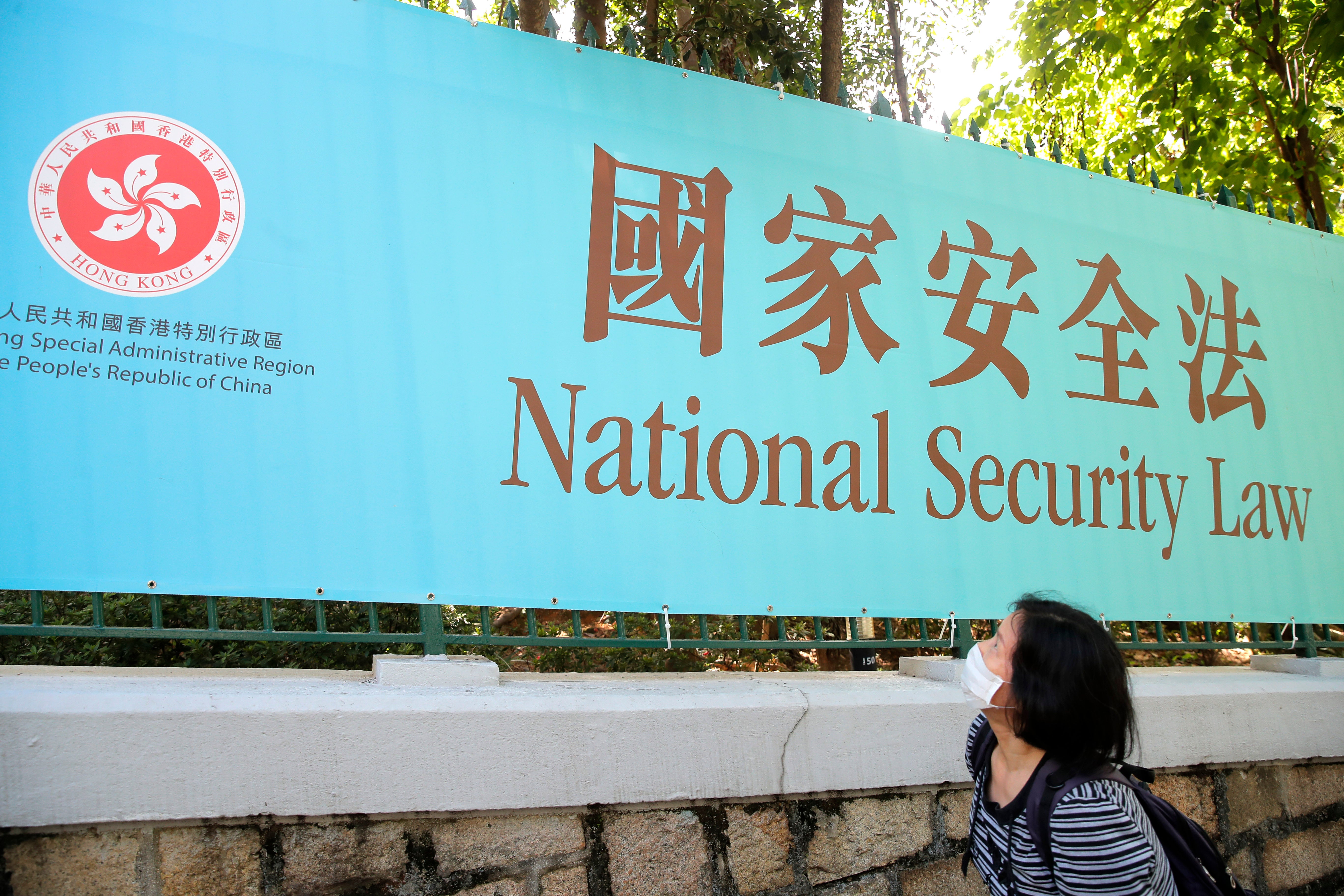A Hong Kong language group shuts down after an essay alleged to have breached security law
A group that promotes the Cantonese language has shut down after Hong Kong authorities said an essay submitted to a literary competition three years ago violated the national security law

Your support helps us to tell the story
From reproductive rights to climate change to Big Tech, The Independent is on the ground when the story is developing. Whether it's investigating the financials of Elon Musk's pro-Trump PAC or producing our latest documentary, 'The A Word', which shines a light on the American women fighting for reproductive rights, we know how important it is to parse out the facts from the messaging.
At such a critical moment in US history, we need reporters on the ground. Your donation allows us to keep sending journalists to speak to both sides of the story.
The Independent is trusted by Americans across the entire political spectrum. And unlike many other quality news outlets, we choose not to lock Americans out of our reporting and analysis with paywalls. We believe quality journalism should be available to everyone, paid for by those who can afford it.
Your support makes all the difference.A group that promotes the Cantonese language shut down on Monday after Hong Kong authorities said an essay submitted to a literary competition three years ago violated the national security law, in the latest example of the city's erosion of freedom of expression.
Andrew Chan, chairperson of the Societas Linguistica Hongkongensis, said in a Facebook post that national security officers visited his former home, where his family lives, without a search warrant last week when he was out of town. The officers asked him to remove the fictional essay in question from his group's website immediately, he said.
Chan said he decided to halt the operation of his association due to the legal risks and a lack of resources.
“I am so shocked and I still cannot believe it's happened,” he said in an email to The Associated Press “I am also sad that even (as) I am running something only related to arts and literature, and still (can) be targeted by the national security police.”
Police have not immediately responded to AP's requests for comment.
After Beijing imposed a national security law in Hong Kong in 2020, following massive pro-democracy protests, dozens of civil societies have disbanded and more than 260 people have been arrested. The shutdown of Chan's group showed that the crackdown on dissident has been expanding to cultural activities.
The fictional article in question is about a Hong Kong-born man who had emigrated with his parents to the United Kingdom when he was young and revisited his birthplace, according to a webpage archive provided by Chan.
In the article, the government changes the names of places to erase colonial elements and suppresses religious freedoms. It ends quoting a famous phrase by late Czech writer Milan Kundera: "The struggle of man against power is the struggle of memory against forgetting.”
Chan said he had been running the group to promote the mother language of many Hong Kongers for 10 years. The Facebook page of the group has 57,000 followers.
Chan said he believed it was the basic right for Hong Kongers to promote their own language and culture, and the group could help foster social harmony. But the action of the authorities proved that his belief was wrong “at least in their eyes," he said.
“It is a pity that we could not continue since we have contributed a lot to Cantonese affairs,” he said.
While most classes in Hong Kong’s schools are still taught in Cantonese, many have added Mandarin to their curriculum as Hong Kong government promotes integration with the mainland.
Hong Kong, a former British colony, returned to China in 1997 and was promised that its Western-style civil liberties can be kept intact for 50 years after the handover. Critics say the freedoms promised to the financial hub have greatly declined after the enactment of the security law.
The Hong Kong government says the law has helped restore stability and warned against acts of “soft resistance.”